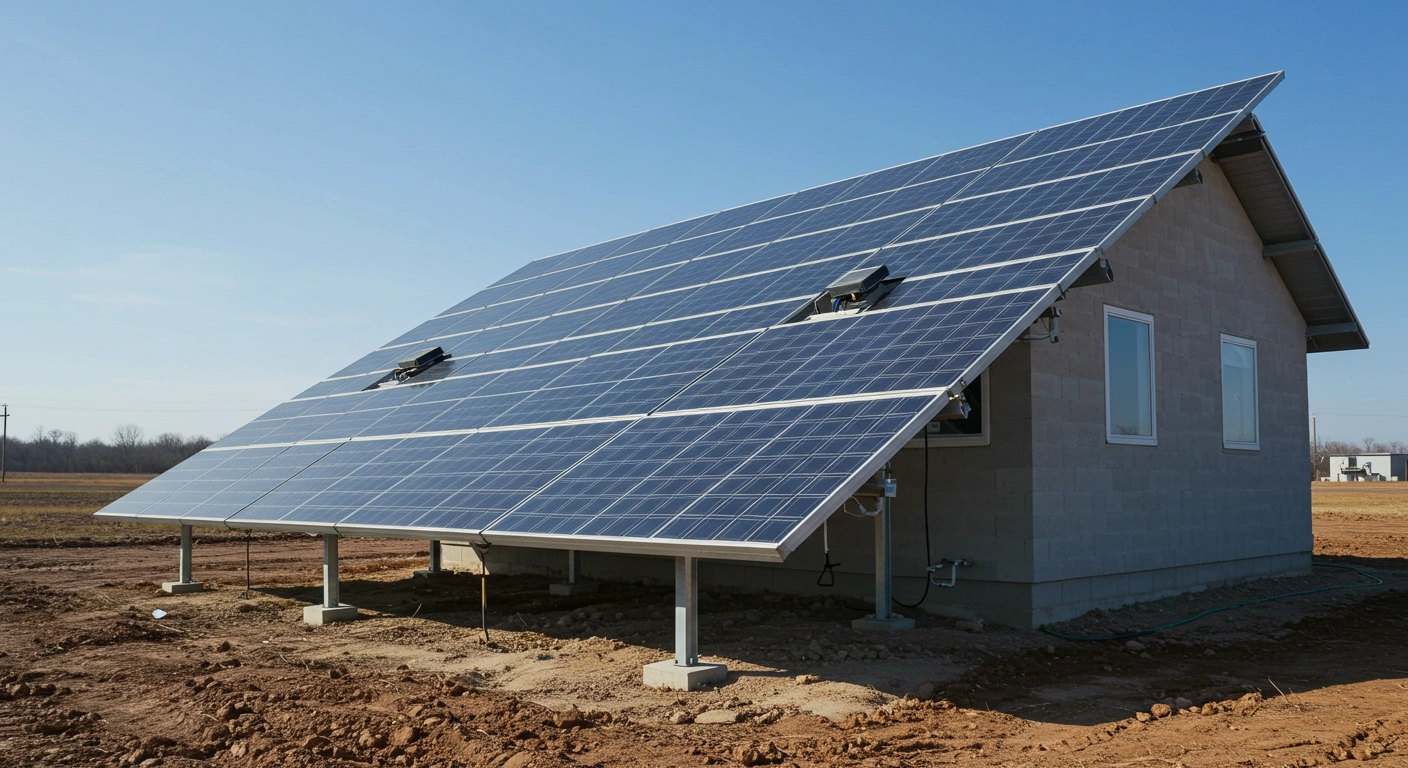
Home & Decor Blogs: DIY, Interior Design & Lifestyle Ideas
How to Choose the Right “Solar Energy Equipment Supplier” for Your Home

Going solar does more than just reduce your bills. It can improve your home value, cut your carbon footprint, and if done well give you reliable power for decades. But here’s the catch even the best solar panels won’t help much if your supplier is sloppy, offers poor quality, or vanishes when you need service.
I’ll walk you through how to choose the right solar energy equipment supplier for your home. You’ll learn what to look for, what red flags to avoid, and what questions to ask. By the end, you’ll feel confident selecting a supplier who delivers good quality, fair price, and long term support.
What to Look For in a Solar Energy Equipment Supplier
Here are the key things you should check. I explain why each matters and how you can verify it.
Product Quality and Warranty
A good supplier sells equipment that will last. Panels, inverters, batteries they all degrade over time, so quality and warranty matter.
- Ask what types of panels they supply (monocrystalline, polycrystalline, bifacial, etc.), and what efficiency you get. Higher efficiency panels cost more, but they produce more power on a small roof.
- Check warranty terms:
Product warranty (defects, physical damage) often 10-25 years.
Performance warranty (how much power they guarantee over time) “after 25 years, they’ll still give you 80% of what was originally promised.”
Inverter warranty often shorter (10-15 years).
- Look for certifications: UL, IEC, CE or local equivalent. These show they’ve been tested for safety and quality.
- Read fine print: things like temperature coefficient, degradation rate, shading behaviour, etc. If the supplier skips or glosses over those, it’s a warning.
Supplier Credibility, Stability & Local Presence
Even if the product is great, if the supplier disappears, becomes bankrupt, or doesn’t service your area, you’ll suffer.
- Ask how long the supplier has been in business. Suppliers who have been around through ups and downs are more likely to still be around years from now.
- Local presence is crucial: spare parts, service, installation help when things go wrong. A supplier with local warehouses or technicians is better. When comparing any solar energy company, you can look at regional providers such as Suntrek Solar as examples of firms that maintain long-term stability and accessible support.
- Also verify after sales / maintenance support do they offer monitoring, repairs
Comprehensive Product & Service Range
A one stop shop tends to give better integration, fewer compatibility issues, and clearer accountability.
- Good suppliers offer all major components: panels, inverters, mounting/racking, wiring, possibly battery storage if you want backup.
- If you plan to expand (add battery later, EV charger, etc.), pick a supplier whose equipment is modular or compatible.
- Ask whether they handle design, installation, permits, inspections, etc., or only sell equipment. If they offer installation too (or partner with reliable installers), that’s a plus.
Technical Support and Design Guidance
Even with the best parts, poor design can cripple performance.
- Does the supplier provide site assessment / shading analysis (e.g., checking sun exposure through seasons, shading by trees or other buildings.)
- Can they help with sizing your system appropriately based on your historic electric bills, climate, usage patterns.
- Do they offer monitoring tools so you can see how much energy your system is producing or whether something failed.
- Check whether they provide advice for roof orientation, tilt, wiring practices.
Transparent Pricing & Total Cost of Ownership
What’s posted price isn’t everything. Cost over time matters.
- Ask for detailed quotes: cost of equipment, installation (if included), shipping, permits, any maintenance. What are hidden costs.
- Evaluate wattage cost: cost per watt of the whole system gives a fair comparison.
- Ask about financing options if you need them. Do they offer leasing, loans.
- Consider efficiency loss over time, maintenance costs, spare parts cost: a cheap panel now might cost more in the long run if it fails early.
Steps to Choose the Right Solar Energy Equipment Supplier
Here’s a step-by-step you can follow to pick confidently.
- Define Your Needs First
Think about your electricity usage, roof size, shading, future expansion (battery, EV charger), budget, aesthetics (do you care about black panels vs silver frames), etc. - Make a List of Local Suppliers + National Brands
Search “solar equipment supplier + your city/region” and also consider big brands. Collect names, websites, reviews. - Compare Product Lines & Certifications
For each supplier: which brands they carry; check warranties & certifications; do their products match your needs (panel efficiency, inverter type, etc.). - Get Multiple Quotes
At least 3 from different suppliers, including total costs. Compare cost per watt and estimated output over time. - Ask the Right Questions
Use the list above: warranty, local service, spare parts, certifications, design, etc. - Check References & Past Projects
See installs from suppliers in your area. Talk to those homeowners if possible. Visit sites (if feasible) to see how panels look, how installation quality is. - Review the Contract Carefully Before Signing
Make sure everything is spelled out equipment models, warranties, who does what, what happens in case of defects or damage, payment schedule.
FAQ
Q1: Do I need to buy all components from the same supplier?
No. It can help (fewer compatibility issues, clearer warranty chains) but it’s not strictly necessary. If you mix brands, just make sure installers/suppliers confirm compatibility (e.g. inverter type, mounting hardware). Check warranties do not get voided by mixing components.
Q2: How much should I expect to pay (equipment only) per watt?
This depends a lot on country, panel type, efficiency, and volume. But as a rough ballpark: you might expect equipment costs (excluding installation) to range widely. What’s more reliable is comparing quotes by cost per watt and also expected output (i.e. how much energy you’ll get). Always ask for estimated yearly production based on your location.
Q3: What warranty durations are standard / good?
Panels typically come with 25-30 year performance warranties. Inverter warranties often 10-15 years. If a supplier offers better than these, that’s a bonus.
Q4: What about batteries and storage?
If you want backup power or to use power at night, battery storage matters. Make sure the supplier supplies (or partners with) reliable battery brands. Ask about battery life, cycles (how many times you can charge/discharge), safety certifications, and warranty. Also check compatibility with your solar system (voltage, inverter type, etc.).
Q5: Can I install it myself / DIY?
Maybe, if you have electrical experience, know local codes, and have safety training. But for most homes, using professionals lowers risks. Suppliers who offer full service (or recommend installers) are easier options. If DIY, you still need good equipment, warranties, and permits.
Conclusion
Choosing the right solar energy equipment supplier for your home isn’t just about finding the cheapest panel. It’s about quality, support, warranties, and thinking very practically about your home’s needs. If you follow the steps above, ask the right questions, compare several suppliers, and check their past work, you’ll be much more likely to get a solar system that works well, lasts long, and gives you peace of mind.
